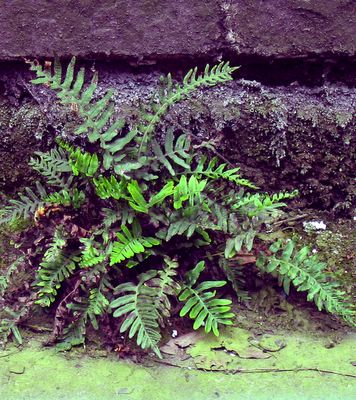W H Beeby


This is a portrait of W H Beeby, a remarkable botanist who although based near London did a vast amount of work on the botany of the most northerly group of islands in the UK - Shetland. It was said that in the end it was the exertion of these trips which killed him.
From The Journal of Botany, part of an obituary of Beeby by Edward S Marshall:
WILLIAM HADDEN BEEBY.
(1849-1910.)
THE only son of William John and Elizabeth Beeby, the subject of this memoir was born on June 9th, 1849. Leaving school very young, for some years he worked with an uncle; then he served under the Union Discount Company of London, and afterwards became cashier in the Bank of Tarapaca and London, retiring last June. For about two years before his death on Jan. 4th, 1910 he suffered from angina pectoris, caused by overstraining his heart while botanizing in Shetland; and the end came suddenly, being due to aneurism of the aorta. His remains were cremated at Woking, four days later. In 1892 he married Miss Florence Emma Hardcastle, of London, who, with their only son, now fifteen years old, survives him.
Beeby was at one time a first-class performer on the flute, and only gave up playing through a bad accident to his hand, caused by barbed wire. A Fellow of the Royal Microscopical Society, he was politely amused, when on a flying visit to us at Witley, by my wife's enquiry whether he understood the working of a compound microscope which she had recently given to me! Mr. Arthur Bennett writes:—" He was the most careful British botanist that I ever knew. He spared no pains and time to get at the truth; even ordinary plants were examined with the microscope." This opinion I can most cordially endorse. Having known almost all our leading botanists during the last quarter of a century— several of them much more intimately than I knew him — I can say that he taught me more than any other of the many friends who have kindly helped me towards a knowledge of our critical plants. Before he became so much tied by official duties he was an ardent sportsman, he always keenly appreciated wild life, and in his prime thought nothing of wading knee-deep in lakes or marshes for many hours A somewhat shy, reserved man (though this tendency was not conspicuous in. his correspondence), he was mainly known to other workers by his published papers; indeed, he once told me that he much preferred solitary expeditions.
My acquaintance with him goes back to 1884, when he was in bachelor lodgings at 14, Ridinghouse Street. Although a great many letters passed between us we had not met for about twenty years; he had hoped to stay at our Somersetshire home next summer, but this was not to be. Himself scrupulously accurate, lie was impatient of vagueness, or slipshod statements, or pretension in others; and his strictures were sometimes too bluntly expressed. With the sweeping and shifting changes in nomenclature which many besides himself dislike, he was not in sympathy; for example, he considered that the Vienna legislation was largely ulra vires, and he specially objected to the insistence on Latin descriptions, which bore hardly on capable men like himself who had been unable to complete their classical studies.
Beeby made his mark earlier than most, and few mistakes could be laid to his charge. A propos of Taraxacum, on which he had promised the Editor a paper only the other day, he wrote to me : "What I know, I know " ; this remark was both true and characteristic. His unusually acute mind seemed instinctively to grasp the salient points of any critical form ; and this advantage was combined with that labor limae which is distasteful to most quick-witted people.
For many years Beeby was engaged in the preparation of a new Flora of Surrey, systematically visiting the less known and more unpromising parts of the county and making exhaustive lists of even the commonest plants ; for he was no mere rarity-hunter, though so successful in his discoveries. Finding that his leisure- time was insufficient for the editorial work, he offered to hand this over to me ; but other calls and my great distance from town forbade my undertaking the task, and at my suggestion it was entrusted to the capable hands of our friend Mr. C. E. Salmon.
So long ago as 1886 he paid his first visit to Shetland ; and in that ultima Thule he spent many summer holidays, with splendid results. His good knowledge of the Scandinavian Flora was of great service here ; and I think that his most valuable work was done in those islands. What may be called "comparative" topographical botany was one of his hobbies ; he was also much interested in the study of evolution.
Beeby's critical gatherings are to some extent represented in the National Herbarium ; the Surrey and Shetland collections will shortly (by his expressed wish) be placed in the Museum founded by Mr. A. 0. Hume, and will thus be accessible to students.
Possessing a remarkable knowledge of our plants in general, and an unrivalled acquaintance with some genera, Beeby does not seem to have paid much attention to Babas and Rosa, which he advised me, when almost a beginner, to let alone for a time. Had health and strength continued, he would beyond a doubt have further increased our knowledge of the British Flora, especially in its relation to that of Arctic and sub-Arctic Europe. So far as I am aware, he never visited Ireland.




 Henry Groves, 1855-1912, botanist
Henry Groves, 1855-1912, botanist

